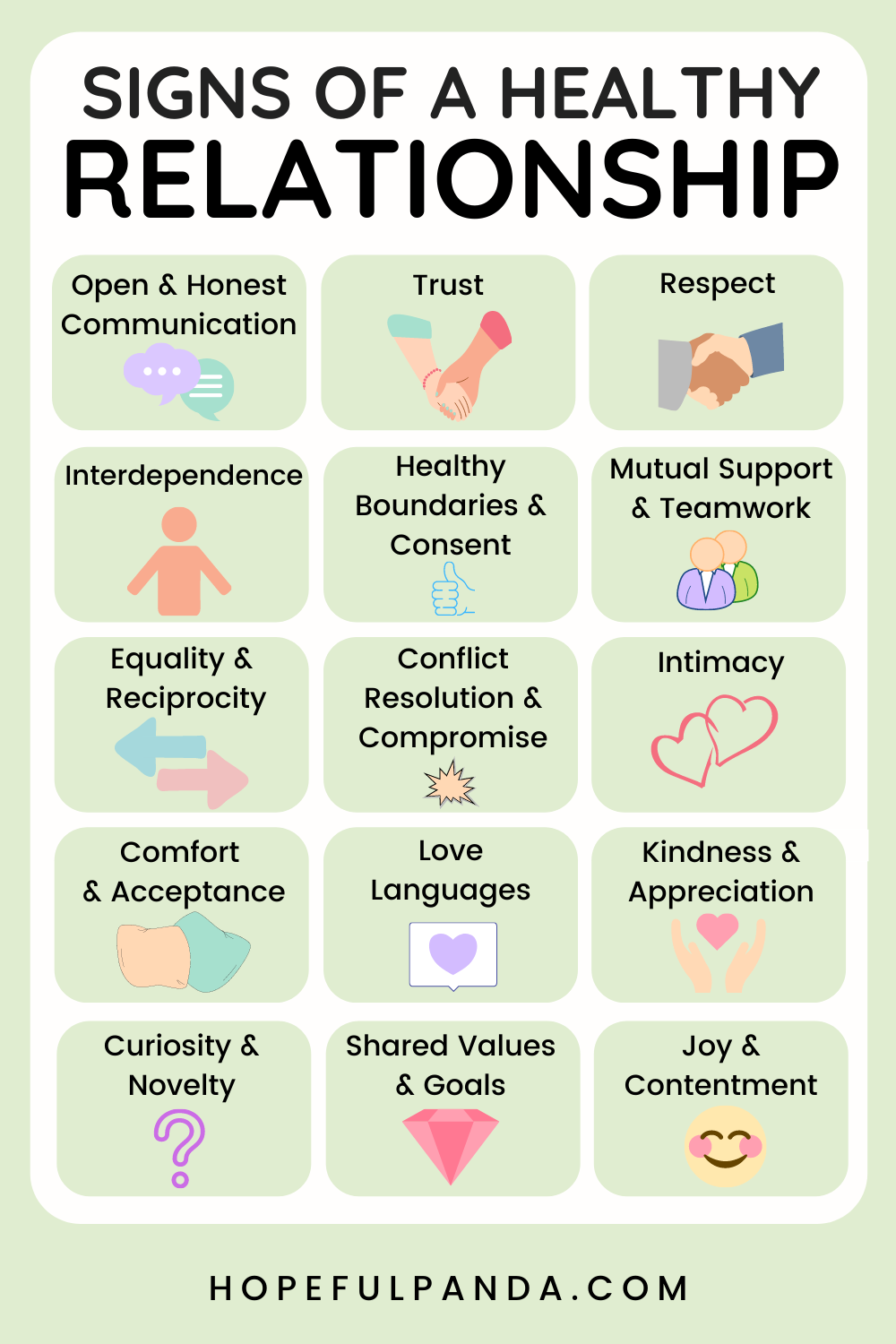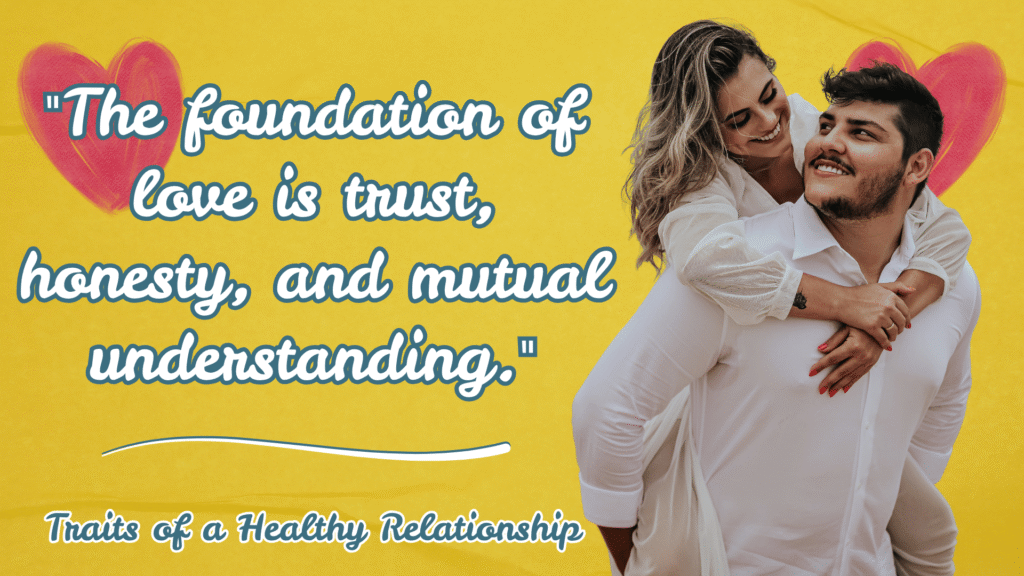Articles, Relationships
Traits of a Healthy Relationship
In the intricate dance of human connections,
healthy relationships stand out as the harmonious symphonies that enrich our lives. They are not merely about shared interests or fleeting passions but are built upon foundational traits that foster growth, understanding, and mutual respect. Let’s delve into the ten essential traits that characterize a healthy relationship.
Trust
At the heart of every strong relationship lies trust. It’s the unwavering confidence that your partner will act in your best interest, uphold promises, and remain faithful. Trust isn’t built overnight; it develops through consistent actions, honesty, and reliability. When both partners feel secure, they can express themselves freely, knowing they’re supported and understood.
Authenticity
Being genuine in a relationship means presenting your true self without masks or pretenses. Authentic partners share their thoughts, feelings, and experiences openly, fostering a deeper connection. This sincerity encourages both individuals to embrace their vulnerabilities, leading to a bond rooted in reality rather than illusion.
Honesty
Honesty goes beyond merely telling the truth; it’s about being transparent and forthcoming. In healthy relationships, partners communicate openly about their feelings, desires, and concerns. This openness prevents misunderstandings and builds a foundation where both individuals feel valued and heard.
Understanding
Empathy and understanding are the bridges that connect two individuals. Recognizing and appreciating your partner’s perspectives, even when they differ from your own, fosters compassion. By actively listening and validating each other’s feelings, couples can navigate challenges with unity and grace.

Acceptance
Every individual brings a unique set of experiences, quirks, and imperfections to a relationship. Embracing your partner wholly, without trying to change them, signifies deep acceptance. This unconditional regard creates a safe space where both individuals can thrive as their authentic selves.
Mutual Benefit
A balanced relationship is one where both partners contribute and gain equally. It’s not about keeping score but ensuring that both individuals feel valued and supported. Whether it’s sharing responsibilities or celebrating each other’s achievements, mutual benefit strengthens the partnership.
Respect
Respect is the cornerstone of any enduring relationship. It involves acknowledging your partner’s boundaries, opinions, and individuality. By treating each other with dignity and consideration, couples cultivate an environment where love and appreciation flourish.
Unselfishness
Selflessness in a relationship means prioritizing your partner’s needs alongside your own. It’s about making sacrifices, big or small, for the well-being of the relationship. This mutual consideration ensures that both individuals feel cherished and understood.
Affection
Physical and emotional affection are vital expressions of love. From holding hands to words of affirmation, these gestures reinforce the bond between partners. Regular displays of affection nurture intimacy and remind both individuals of their deep connection.
Joyfulness
Laughter and shared joy are the lifeblood of a vibrant relationship. Engaging in fun activities, reminiscing about cherished memories, or simply enjoying each other’s company infuse the relationship with positivity. This joy acts as a buffer against life’s challenges, reinforcing the strength of the partnership.
Conclusion
Healthy relationships are not devoid of challenges, but they are characterized by resilience, mutual growth, and unwavering support. By cultivating these ten traits—trust, authenticity, honesty, understanding, acceptance, mutual benefit, respect, unselfishness, affection, and joyfulness—couples can build a partnership that not only endures but thrives.
FAQs
How can we rebuild trust after it’s been broken?
Rebuilding trust requires consistent actions, open communication, and patience. Both partners must be committed to transparency and understanding, allowing time for healing and restoration.
What if one partner struggles with expressing affection?
It’s essential to understand each other’s love languages. Open discussions about needs and preferences can help partners find comfortable ways to express and receive affection.
How do we maintain individuality in a close relationship?
Encouraging personal hobbies, friendships, and goals ensures that both partners retain their individuality, which enriches the relationship by bringing diverse experiences and perspectives.
Can a relationship survive without shared interests?
While shared interests can enhance connection, mutual respect, communication, and support are more critical. Celebrating differences can also introduce partners to new experiences and growth.
How do we keep joy alive in long-term relationships?
Regularly engaging in fun activities, expressing gratitude, and reminiscing about positive memories can reignite joy. Prioritizing quality time together fosters continued connection and happiness.

